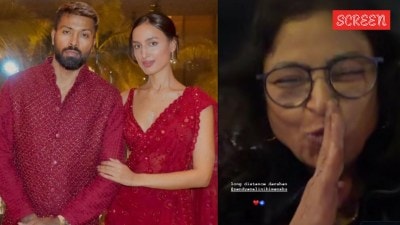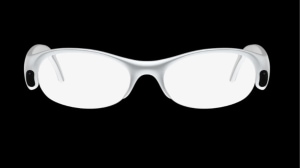Guns and posers
Had you watched Bowling for Columbine AXN before you saw Fahrenheit 9/11, you would have known what to expect: plenty of Michael Moore who...

Had you watched Bowling for Columbine AXN before you saw Fahrenheit 9/11, you would have known what to expect: plenty of Michael Moore who expands the screen in order for it to accommodate his bulky presence. Columbine is the better film on an equally tragic event: the killing spree of two teenagers in an American school. Moore8217;s penchant for propaganda is evident in his sales pitch against USA8217;s gun culture but on this occasion it is via people who carry the guns rather than those who oppose them8212;8216;8216;I always had a gun,8217;8217; boasts a private militia woman, 8216;8216;take care of your own family yourself8217;8217;. James Nichols sleeps with a Magnum, thinks the Oklahoma bomber 8216;8216;was a nice guy8217;8217; and it8217;s a 8216;8216;duty to overthrow bad governments8217;8217;, even if it leads to 8216;8216;blood on the streets8217;8217;.
We meet a youngster who makes napalm bombs, witness footage of the school rampage and learn how 8216;8216;normal and average8217;8217; Columbine8217;s Littletown is8212;except for a Lockheed Martin guns factory where many of its people work.
At two and a half hours, the film is too long but builds up a strong case against free access to weapons. It argues that a fear psychosis is responsible for the highest number of gun deaths in USA by contrasting it with a Canadian city just across the border, where there is a high incidence of gun possession, high unemployment and people who love to watch violent films but live with their front doors open. The difference, according to Moore, is that Canadian politicians and media, unlike American, do not revel in violence.
A facile and unoriginal conclusion but it strikes a chord: the Indian media lives off violence like it is a vitamin pill; there are sponsored shows devoted to the most gory and bizarre crimes8212;and don8217;t we just enjoy the camera lingering on bodies militants, Veerappan8217;s, Phoolan Devi8217;s; also, had you watched Rakesh Sharma8217;s Final Solution, you would know how politicians incite and invite violence.
Last Hour on Flight 11 Discovery was perhaps made to reveal the heroism of attendants on the American Airlines flight that would crash into the WTC8212;it is largely reconstructed on the basis of their phone calls to ground control; in the process it presents a time line account of how the plane was hijacked easily8212;the actor playing Atta bore him a strong resemblance8212;and recounts events in the air and on the ground before the attack. Frightening.
So to the day, the box-wallahs salute themselves. The Indian Telly Awards Sony may not have possessed pomp and glory, but they had Jassi. And Pari and Mallika and Sujal and Kashish, to mention not Mr Bajaj without streaked hair, Babuji and Praful and the redoubtable Ekta 8216;K8217; Kapoor. Pari thanked 8216;8216;the big man up there8217;8217; God, Praful, closer home, his mother, and Mr Bajaj his good fortune that television a.k.a. Ekta had rescued him from Bollywood anonymity. Mallika was grateful to everyone but especially 8216;Jitendra8217;, by whom she didn8217;t mean Ekta8217;s film star father but our very own Jassi.
Jassi was on display most because a she was the winner of the night and b the show was on Sony. She belied our expectations by not thanking her wig, spectacles, braces for her award. Three comments: actors don8217;t need to accept the awards like they8217;re death sentences; TV actors need to take dancing lessons; and the theme songs of the winning serial should play for winners rather than Telly8217;s theme song.
Lastly, where the judges of Indian Idol Sony were rude, even obnoxious, in the first rounds, they now drip sweetness like a honeycomb; they are now unabashedly admiring and provide little insight to the comparative demerits of a contestant. Suddenly, those 8216;8216;average8217;8217; performances have become superlative: wonderful, never heard better, we have found the next playback singer8230;Hello? This is not fun. However, maybe the judges flatter to deceive, that or they don8217;t want to influence their judgement8212;in which case what are they doing there?
- 01
- 02
- 03
- 04
- 05































